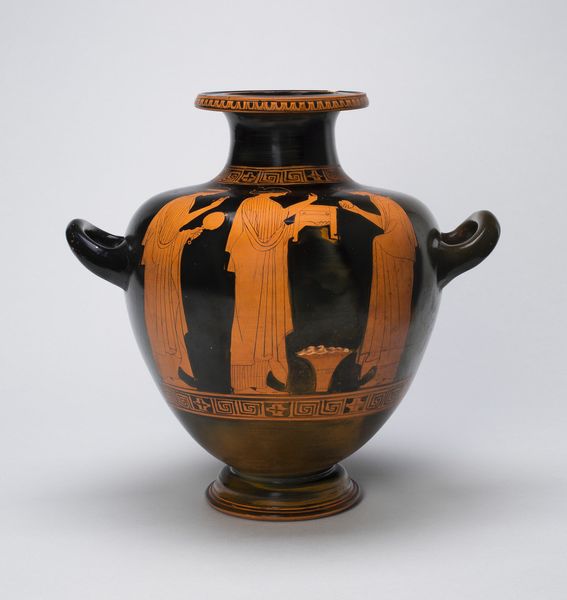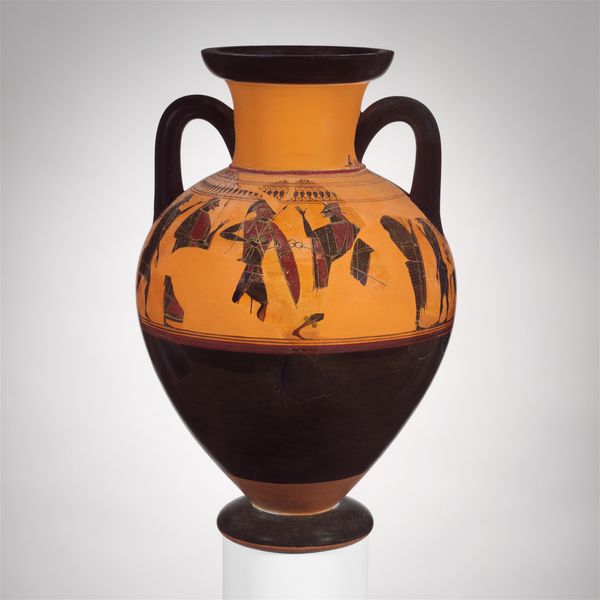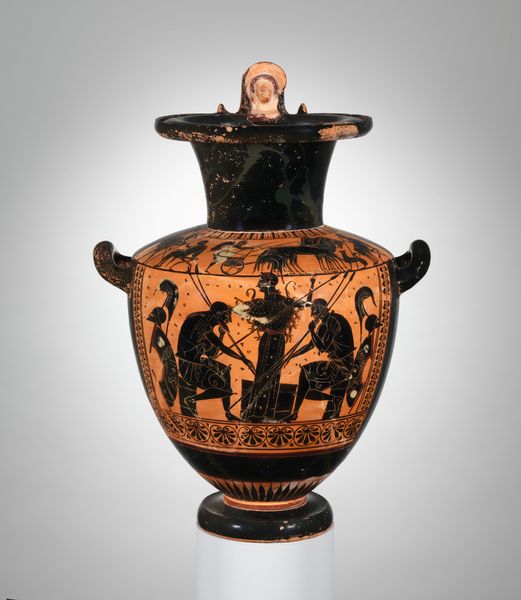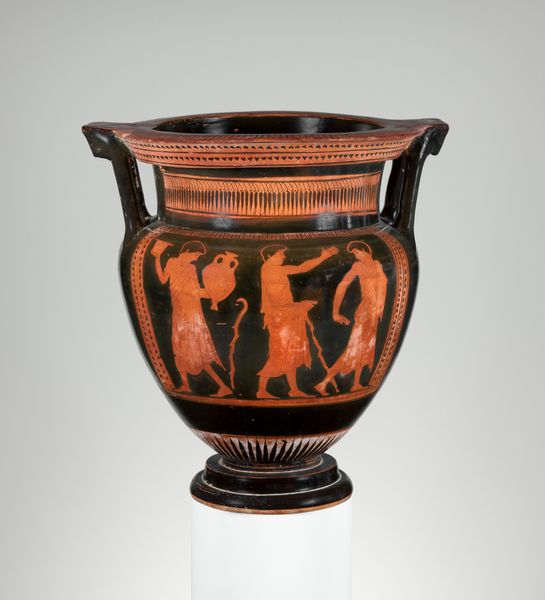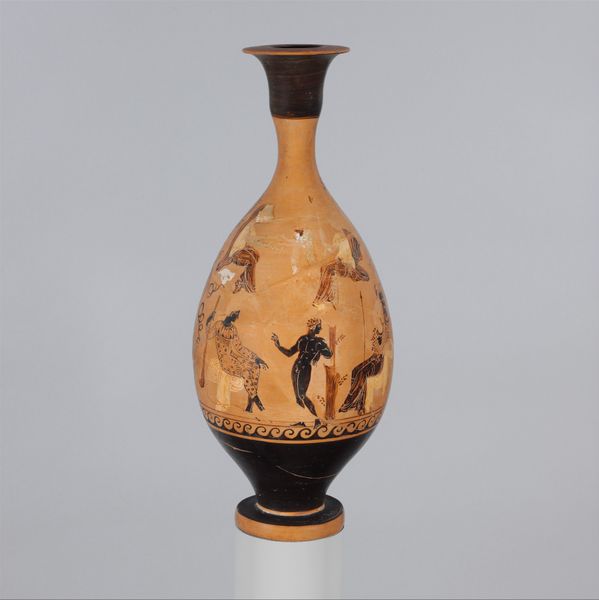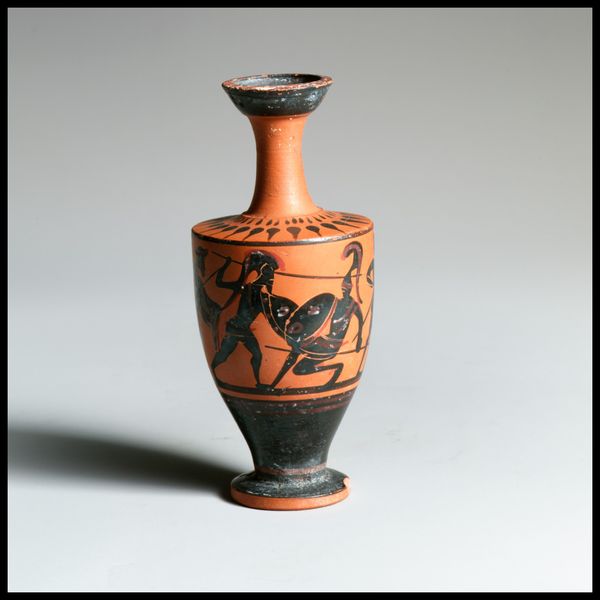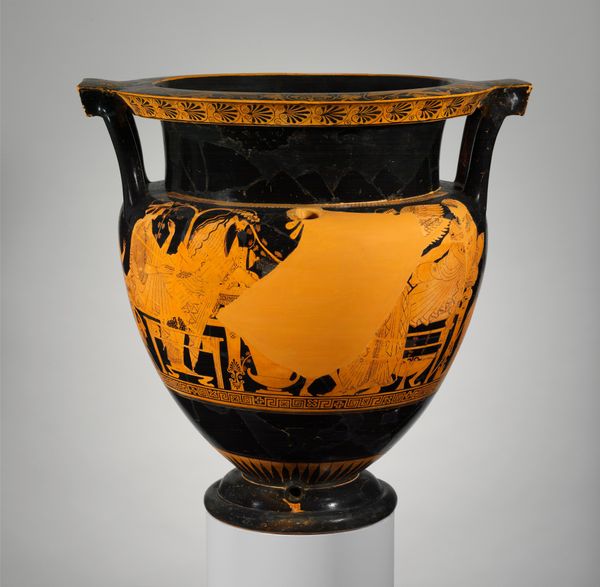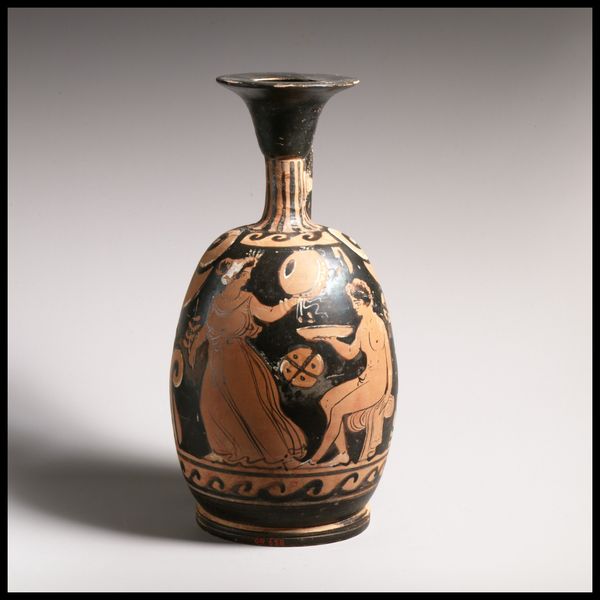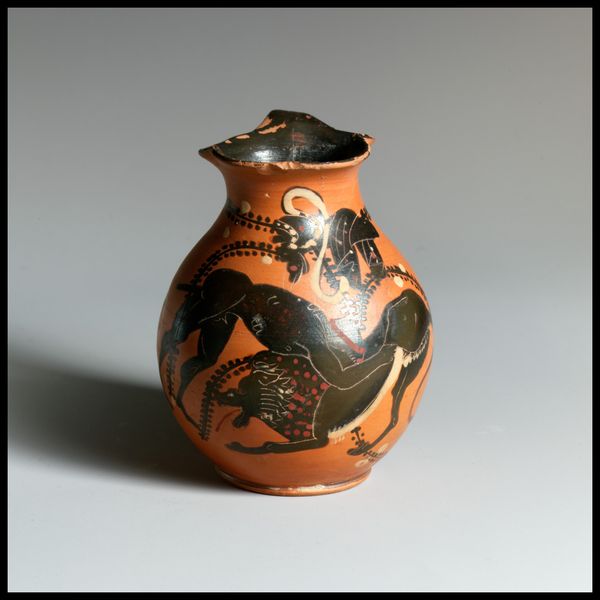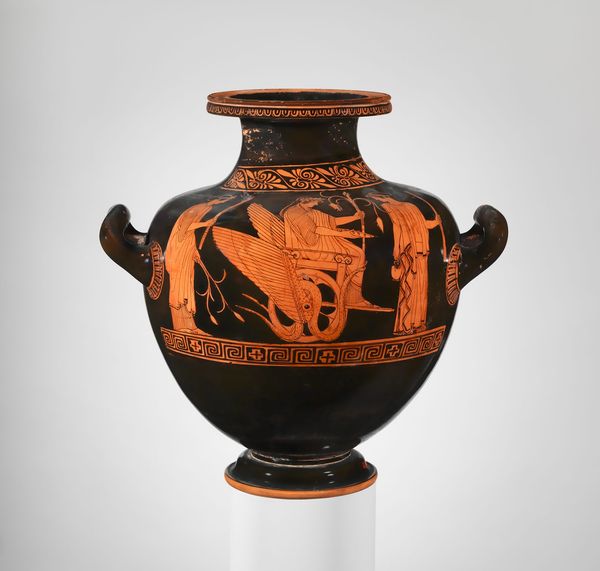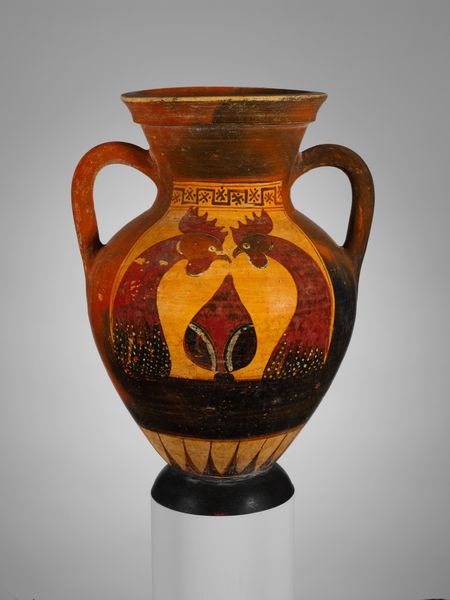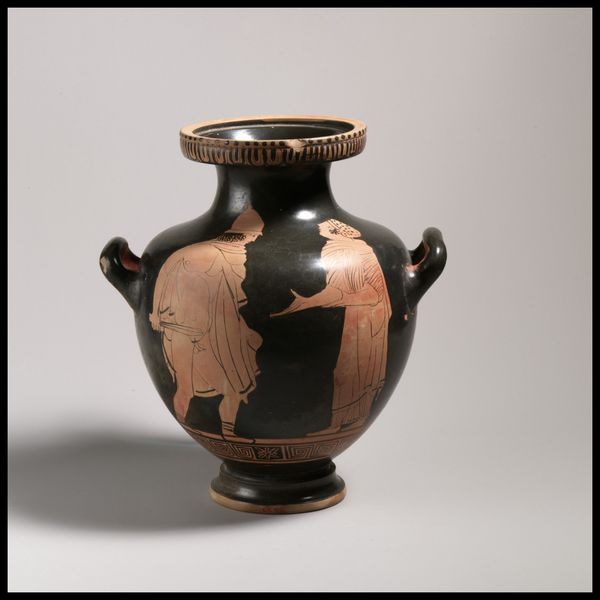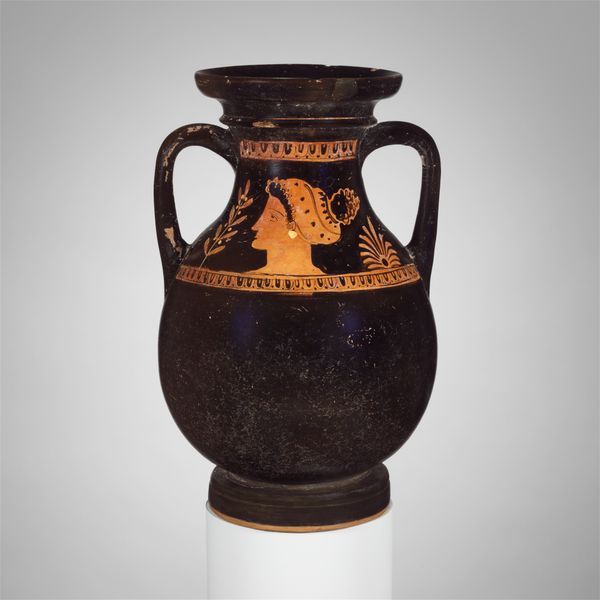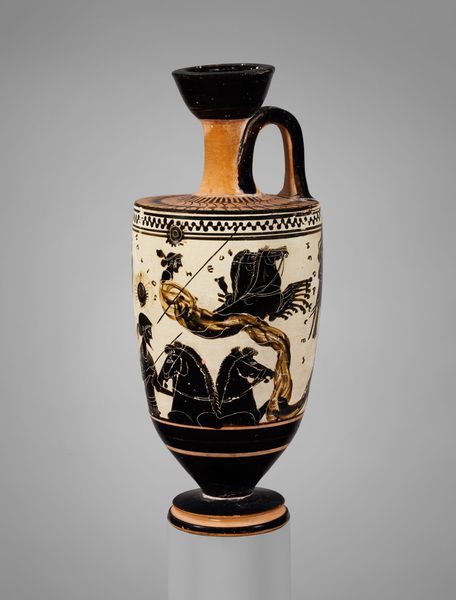
ceramic
#
greek-and-roman-art
#
landscape
#
ceramic
#
vase
#
figuration
#
ceramic
Dimensions: H. 11 7/8 in. (30.20 cm)
Copyright: Public Domain
Editor: This is a terracotta psykter, or wine cooler, created around 520 BC by Oltos. I'm struck by the stark contrast between the black background and the orange figures. What can you tell me about its artistic structure? Curator: Notice how the shape of the vase itself, with its rounded belly and stemmed base, creates two distinct registers, one for viewing, the other for support. Consider, too, the painterly distribution of figures; how the curves of the dolphins mirror the vase's own contours, setting up visual rhymes. The application of glaze reveals sophisticated control, does it not? Editor: It does, I see what you mean. How does the artist maintain balance with so few colours and forms? Curator: Oltos establishes equilibrium through repetition. See the identical figures in their bilateral arrangement; they are each echoes. Furthermore, observe how the circular shields and vase's body resolve into repeating spheres. Can you imagine if it was done differently? Editor: If the figures weren't balanced and repeated like that, I imagine the whole thing would feel chaotic, even unstable, with all that negative space around the images. It's also amazing how something functional can also be a complete aesthetic statement. Curator: Precisely. Oltos transcends utility. We come to see not just a container, but a demonstration of aesthetic ordering. Editor: This has been fascinating; looking at it in terms of shape and repetition has really changed my perspective. I will remember that during my next studio art projects. Curator: And for me, a reminder that the humblest object may reflect art's deepest principles of balance, contrast, and visual rhyme.
Comments
No comments
Be the first to comment and join the conversation on the ultimate creative platform.
